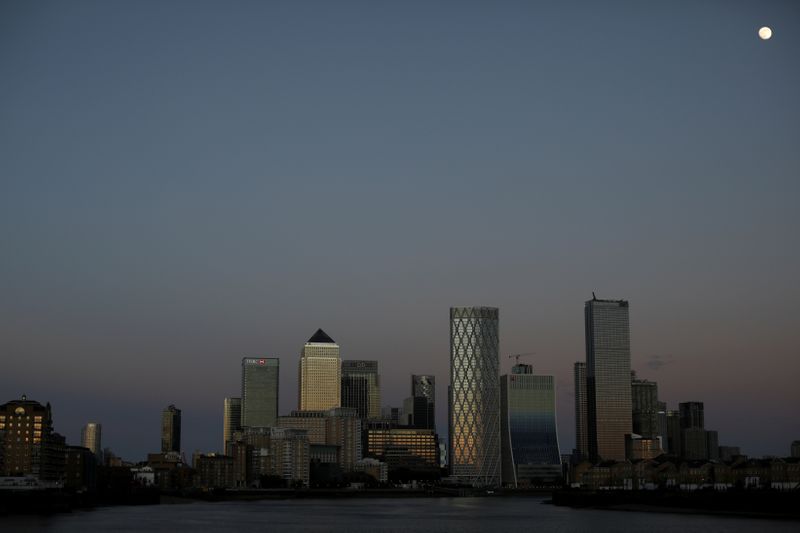By Sinead Cruise and Kirstin Ridley
LONDON (Reuters) - Some of Britain's biggest financial and legal firms have stepped up support for staff and customers suffering domestic abuse after the coronavirus lockdown shed new light on the scale of a problem affecting millions nationwide.
Legislation now progressing through parliament suggests this is costing Britain 66 billion pounds ($86 billion) a year, with official figures estimating around 2 million people, mainly women aged 16 to 74, suffer some form of domestic abuse.
The Domestic Abuse Bill will introduce a statutory definition that includes physical violence but also emotional, coercive and economic abuse, after extensive lobbying by the charity Surviving Economic Abuse and the financial sector.
As the coronavirus pandemic forces millions to work from home and calls to helplines surge, Lloyds Banking Group (L:LLOY) and NatWest Group (L:NWG) have teamed up with charities SafeLives and Surviving Economic Abuse to offer financial as well as practical aid to victims.
And with remote working increasing social isolation, some firms are also striving to help staff.
Lloyds, Britain's biggest retail bank with about 65,000 employees, has launched an emergency programme that offers vulnerable staff and their children refuge in a hotel, travel and living expenses, as well as advice and compassionate leave.
Law firm Linklaters is offering a similar package, saying the crisis had put the onus on employers to tackle what the United Nations calls a "shadow pandemic" of violence against women.
"For too long it has been left to a small number of highly specialist, feminist organisations to make the case for bringing an end to domestic abuse, and trying to find the means to do that," SafeLives' Chief Executive Suzanne Jacob said.
"As major companies start to think in a new way about their workforce and their customers, so much more is possible."
Domestic abuse charity Refuge said it has received more than 40,000 calls since Britain's lockdown began in March and, as restrictions eased, the number of people needing emergency accommodation rose 54% in the first week of July.
The FICC Markets Standards Board last month warned that abuse can go undetected without face-to-face interaction, which has declined during widespread remote working.
"What could have been seen purely as a domestic issue all of a sudden was more clearly a workplace issue and you have to take action," Jenny Lloyd, diversity and wellbeing manager at Linklaters, said.
The Metropolitan Police, which covers London, said domestic violence reports rose by a third in the six weeks to April 24, while its officers made around 100 arrests a day.
"With more people working from home than ever before, this issue needs urgent attention in many employers," a spokesman for employee union Unite said.
CRITICAL ROLE
Economic or financial abuse can leave victims with no access to money or bank accounts and vulnerable to debts built up by their partners, even after they have fled an abusive home.
With thousands of tell-tale datapoints at their fingertips, financial firms are often on the frontline of the fight against such abuse, but cannot act before a customer asks for help.
NatWest launched a 1 million pound fund in June to provide financial lifelines to victims without the means to rebuild their lives. This will make grants to cover the costs of food and household bills.
More than a dozen companies have approached SafeLives for advice and help in devising support packages since March.
"People have had a number of lights turned on about what it might mean to have a duty of care to staff when they are not in a typical workspace," SafeLives' Jacob said.
NatWest's Customer Protection Manager Kim Chambers said her team provided support to 325 people in the second quarter, with 70% saying their abusers had used money to control them.
Barclays (L:BARC), HSBC (L:HSBA) and insurer Aviva (L:AV), have trained thousands of staff to identify signs of financial abuse so they can respond better to those at risk.
Banks can now also offer to block joint accounts in dispute, remove names without both parties present and open new accounts with different sort codes to hide a victim's new location.
"Banks have a critical role to play in supporting survivors of economic abuse," NatWest CEO Alison Rose said.

($1 = 0.7645 pounds)